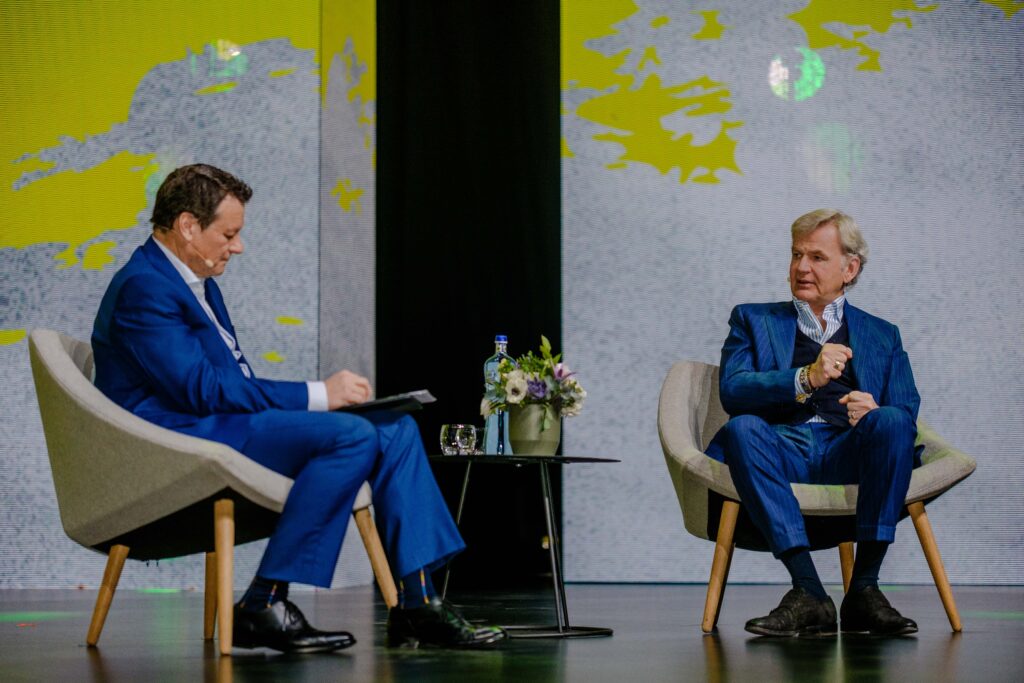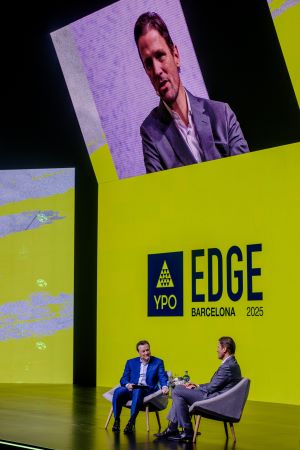Leadership is no longer about just making decisions — it’s about rethinking power, influence and purpose in an era of uncertainty. At YPO EDGE 2025 in Barcelona, top global leaders shared what it takes to lead in today’s rapidly evolving world. Their message? The old playbook is obsolete. The future belongs to those who embrace empathy, adaptability and a commitment to real change.
Forget power; lead with empathy and grit
Mary Robinson, former President of Ireland, and Zuzana Čaputová, former President of Slovakia, know firsthand the challenges of leadership in turbulent times. In a conversation moderated by international lawyer Sir Mark Vlasic, they discussed what it means to lead with integrity, especially in an era of rising political division, climate urgency and democratic fragility.
Both leaders emphasized that empathy and compassion are not weaknesses but essential qualities in leadership.
“People need to feel seen and heard, especially during crises,” Robinson says. Čaputová echoes this, highlighting the importance of self-awareness and humility in positions of power. “The most important thing is to work on ourselves — self-reflection, self-knowledge and keeping our ego in check,” she says.
They also addressed the unique struggles women face in leadership, from systemic bias to outright threats. Despite these challenges, they urged businesses and governments alike to champion gender equity and create environments where diverse leadership can thrive.
The role of business in strengthening democracy and society
Beyond politics, Robinson and Čaputová stressed that business leaders play a vital role in shaping a more sustainable and equitable world. “Businesses have the power — and the responsibility — to promote responsible practices, combat misinformation and drive meaningful social change,” Robinson argues.
They called on leaders to adopt sustainable business strategies, uphold democratic values and foster cross-sector collaboration. Čaputová warned against the rise of populist rhetoric and misinformation, urging leaders to engage critically with media and invest in protecting democratic institutions.
Balancing legacy and innovation in family business

Few understand the balance between tradition and transformation better than James Ferragamo and Franco Gussalli Beretta. As leaders of legacy family businesses — Salvatore Ferragamo and Beretta, respectively — they shared their strategies for ensuring longevity while embracing change.
Ferragamo emphasized the importance of discipline and strategic planning in family enterprises. His family’s approach requires members to gain external experience before joining the business, ensuring fresh perspectives while maintaining the company’s core values.
“The value of a family business is that you can merge different perspectives; heritage with innovation, tradition with new ideas,” he says.

For Beretta, diversification has been key to growth. While Beretta is best known for its firearms, the company has expanded into apparel and accessories. Yet, despite its 500-year history, one thing has remained unchanged: a commitment to legacy. “Our mission is not just to run a company. It’s to be caretakers for the next generation,” he says.
The leadership playbook is being rewritten. Are you ready?
The verdict from EDGE 2025: Leadership is being redefined in real-time. The most successful leaders aren’t those who cling to old models, but those who balance vision with humility, tradition with innovation, and authority with responsibility. In an era where trust is fragile and expectations are high, leadership must be earned daily.


